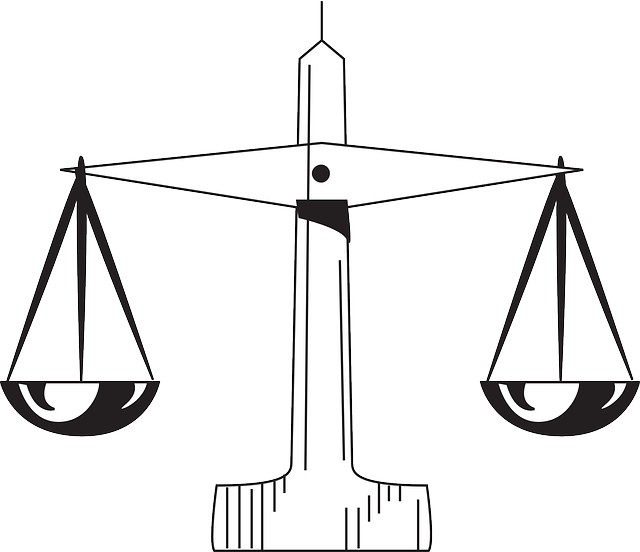Litigation Documents UK translation services are vital for ensuring fairness and accuracy in the British legal system. Specialized translators with legal expertise navigate complex jargon, adhering to strict regulations like CPR and the Interpretation Act 1978. These professionals bridge linguistic gaps in foreign evidence, witness statements, and contracts, facilitating just outcomes for all parties, especially non-English speakers. Choosing reputable providers with certified translators, advanced technology, and quality control ensures document validity and trust in court proceedings.
In the intricate landscape of UK court proceedings, certified translations play a pivotal role, ensuring clarity and admissibility. This article delves into the significance of professional translation services within the legal framework of the UK. From understanding the legal requirements to exploring technology’s impact on precision, we cover essential aspects. We discuss types of litigation documents demanding expert translation, guide choosing reliable services, and present best practices for handling sensitive cases. By mastering these elements, legal professionals can navigate complex translations effectively, ensuring justice in every word.
- Understanding the Importance of Certified Translations in UK Court Cases
- The Legal Framework for Translation Services in the UK
- Types of Litigation Documents Requiring Professional Translation
- Choosing the Right UK Translation Service for Legal Documents
- Ensuring Accuracy and Quality in Certified Translations
- The Role of Technology in Modern Legal Translation Services
- Case Studies: Successful Certified Translations in UK Courts
- Best Practices for Handling Sensitive Legal Translations
Understanding the Importance of Certified Translations in UK Court Cases

In the intricate landscape of UK court proceedings, precision and clarity are paramount. Certified translations play a pivotal role in ensuring that litigation documents, often comprising complex legal jargon, are accurately conveyed across languages. These professional translation services are not just about word-for-word equivalency; they involve mastering the nuances of both the source and target languages to preserve the intent and meaning of the original document. This is especially crucial when dealing with foreign evidence or witness statements, where a single misinterpreted phrase could have significant implications for the case.
UK translation services specializing in litigation documents are designed to meet the stringent requirements of the legal sector. They employ translators with extensive experience in legal terminology, who are also native speakers, to deliver translations that are not just linguistically sound but also legally compliant. Such services ensure that all parties involved—from lawyers to judges—can rely on the accuracy and authenticity of the translated documents, facilitating fair and efficient court processes.
The Legal Framework for Translation Services in the UK

In the UK, the legal framework for translation services is stringent, ensuring accuracy and integrity in all court proceedings. The need for certified translations in litigation documents is governed by the Civil Procedure Rules (CPR) and the Interpretation Act 1978. These laws stipulate that all legal documents must be translated accurately and professionally to facilitate fair and transparent justice.
Translation services for litigation documents are vital to ensure that non-English speakers can access justice and present their cases effectively. Certified translators, who are often linguistically and culturally competent professionals, play a crucial role in this process. They must adhere to the highest standards of professionalism and accuracy, as their work directly impacts court outcomes and individual rights.
Types of Litigation Documents Requiring Professional Translation

In the context of UK court cases, precise and certified translations are paramount for ensuring all litigation documents are accurately represented. This is especially crucial when dealing with foreign-language evidence, witness statements, contracts, legal opinions, and any other materials that form part of the official record. Professional translation services play a vital role in navigating the complexities of cross-border litigation, providing clarity and admissibility to these essential documents.
Litigation documents requiring professional translation in UK court cases encompass a wide range of legal paperwork. These may include contracts drafted in non-English languages, foreign court judgments seeking recognition and enforcement in the UK, expert reports from international witnesses, and written submissions from parties or lawyers based abroad. Accurate translations are necessary to bridge the linguistic gap, ensuring that all parties involved have equal access to information and facilitating a fair and just process.
Choosing the Right UK Translation Service for Legal Documents

Choosing a reputable Litigation Documents UK translation service is paramount when accuracy and legal validity are at stake. With strict regulations surrounding translated documents in court cases, it’s essential to select a provider with experience handling legal material. Look for services that employ certified translators with expertise in the specific field of law, ensuring they understand technical jargon and legal terminology fluently.
Reputation and credentials matter. Opt for companies that are members of respected translation associations and have proven track records of delivering precise translations. Many offer additional guarantees and quality checks to safeguard against errors, which can be vital in court proceedings.
Ensuring Accuracy and Quality in Certified Translations

In the realm of UK court cases, where precision and clarity are paramount, ensuring accuracy in certified translations is non-negotiable. Professional translation services play a pivotal role in facilitating effective communication between legal entities, especially when dealing with litigation documents. These services employ experienced linguists who possess not only expert knowledge but also a deep understanding of both the source and target languages.
Quality control measures are rigorously followed to guarantee that every translated document adheres to the highest standards. This includes meticulous proofreading, editing, and review processes to capture even the most subtle nuances and legal terminologies accurately. Reputable UK translation services invest in advanced technology and tools to enhance productivity without compromising quality, ensuring that litigation documents are handled with the utmost care and expertise.
The Role of Technology in Modern Legal Translation Services

In today’s digital era, technology plays a pivotal role in enhancing legal translation services for litigation documents in the UK. Advanced tools and platforms have revolutionised how professionals approach language interpretation, ensuring accuracy and efficiency. Machine translation software, for instance, can rapidly process vast amounts of text, providing a preliminary draft that human translators can then refine and polish to meet the stringent requirements of legal contexts.
This technological advancement is particularly beneficial when dealing with complex litigation documents, where precision and cultural nuance are paramount. AI-powered tools can assist in identifying sensitive terminology, ensuring consistent rendering across languages, and even flagging potential legal nuances or ambiguities. As a result, UK translation services for litigation documents have become more accessible, faster, and reliable, catering to the demanding needs of modern legal practices.
Case Studies: Successful Certified Translations in UK Courts

In recent years, certified translations have become an integral part of UK court proceedings, ensuring accuracy and compliance in litigation documents. Many successful case studies highlight the significance of professional translation services in navigating complex legal landscapes. For instance, a multinational corporation facing a patent infringement lawsuit required precise translation of technical documentation from its native language to English. By engaging a reputable UK translation service, they achieved flawless translations, enabling clear communication between the court, legal counsel, and foreign witnesses, ultimately leading to a favorable outcome.
Another notable case involves an international family law matter where a local court demanded certified translations of marriage certificates and birth records for a cross-border divorce. A specialized translation agency stepped in, providing urgent and precise translations, facilitating efficient case management and ensuring the protection of sensitive personal data. These examples demonstrate how UK translation services play a pivotal role in facilitating justice, bridging language barriers, and contributing to successful litigation outcomes.
Best Practices for Handling Sensitive Legal Translations

When dealing with sensitive legal translations for UK court cases, it’s crucial to adhere to best practices that ensure accuracy, security, and compliance. One key aspect is engaging professional translators with expertise in legal terminology and procedures specific to the UK. This minimises errors and ensures the translation accurately conveys the intended meaning within the appropriate context.
Additionally, employing secure translation platforms and following strict confidentiality protocols is essential. Litigation documents often contain sensitive information; thus, using encrypted systems and limited access ensures data protection. Regular quality assurance checks by legal professionals further refines the translated content, guaranteeing its suitability for use in court proceedings.
In the intricate landscape of UK court proceedings, certified translations play a pivotal role in ensuring justice and fairness. This article has explored the significance of professional translation services for litigation documents, highlighting their legal framework, types of required documents, and best practices. From choosing the right service to emphasizing accuracy and technology’s role, understanding these aspects is crucial for successful outcomes in UK courts. By adhering to established guidelines and leveraging modern tools, translation services can facilitate precise communication, upholding the integrity of legal processes and promoting a robust justice system.
